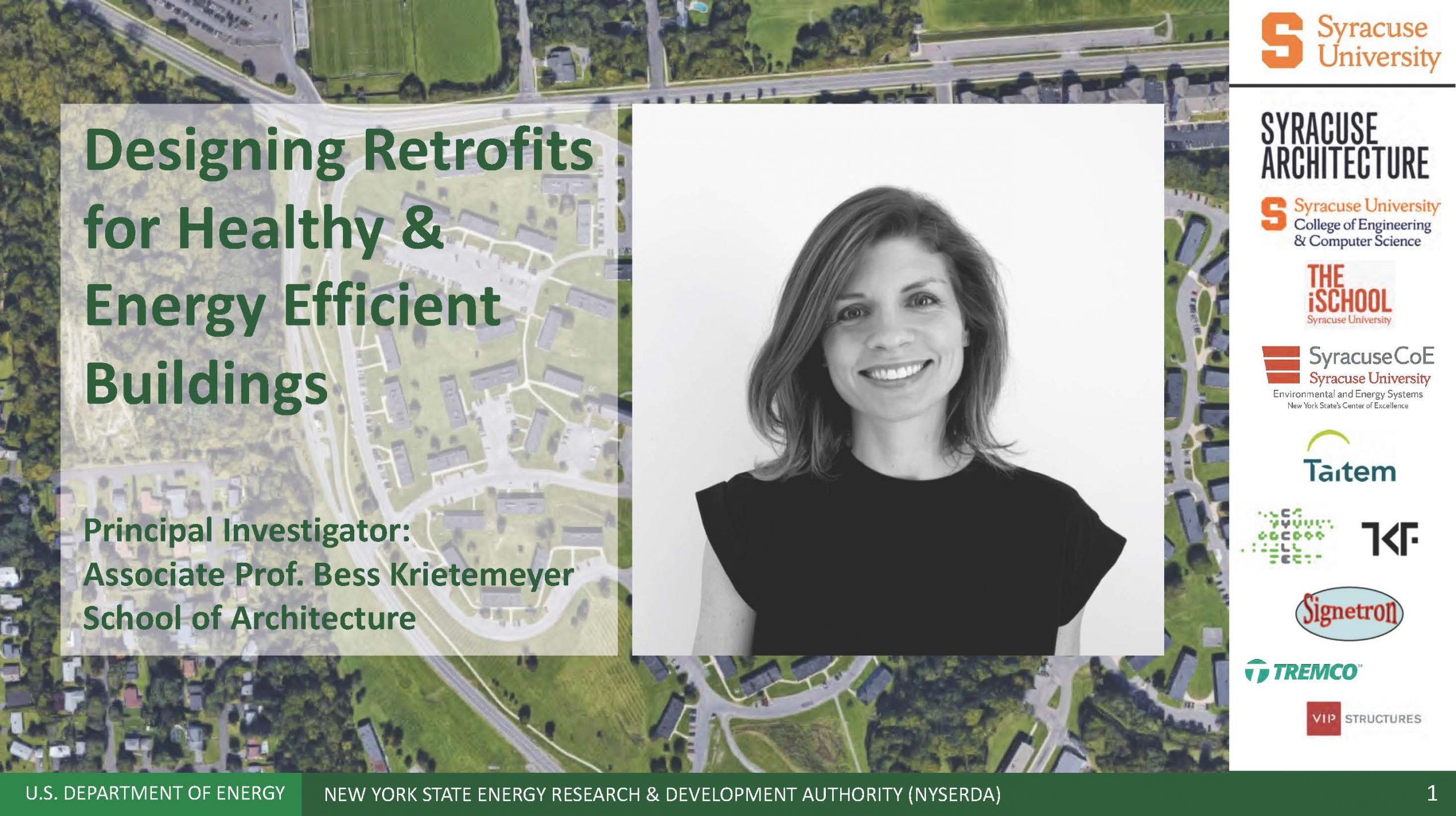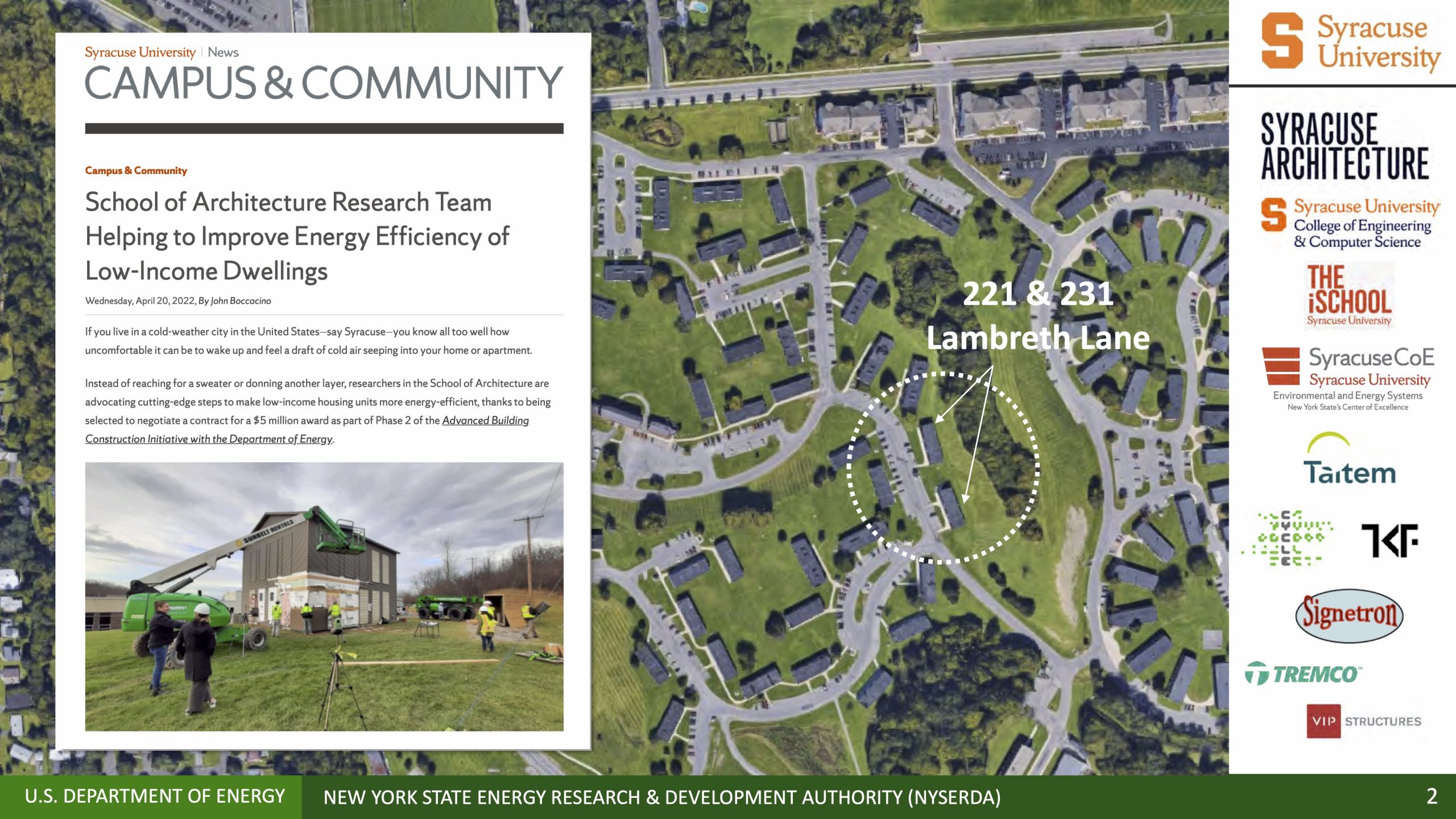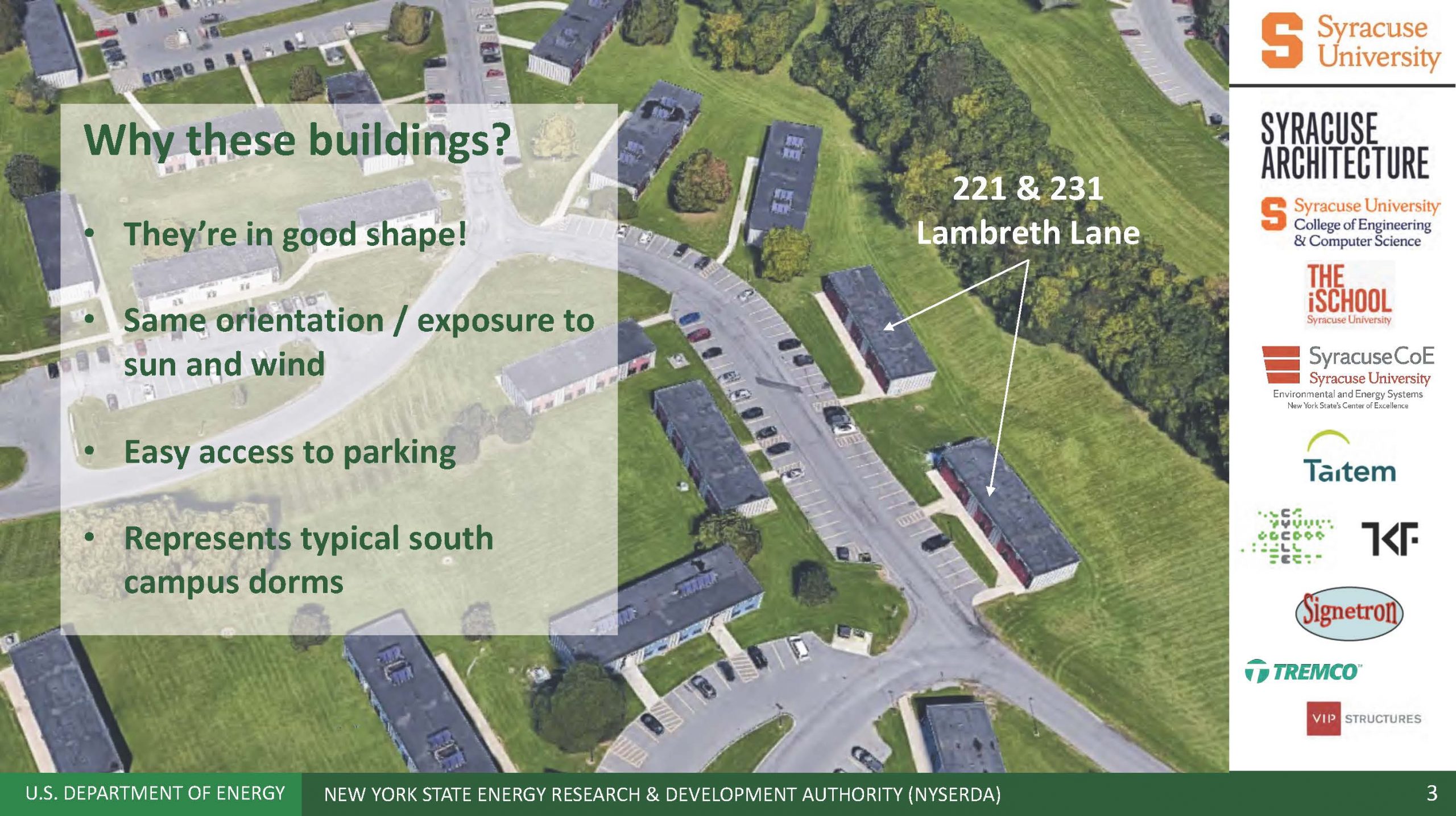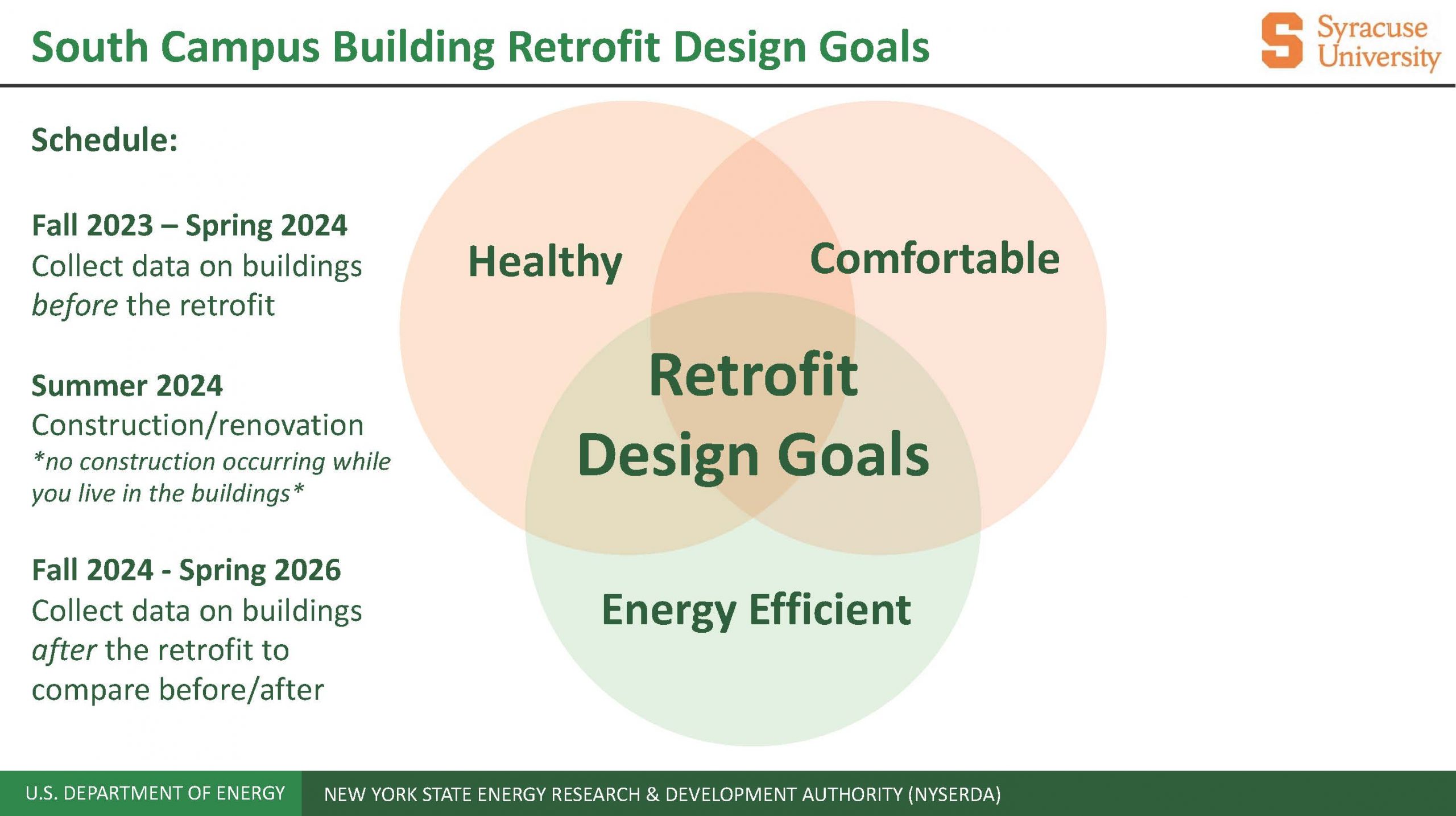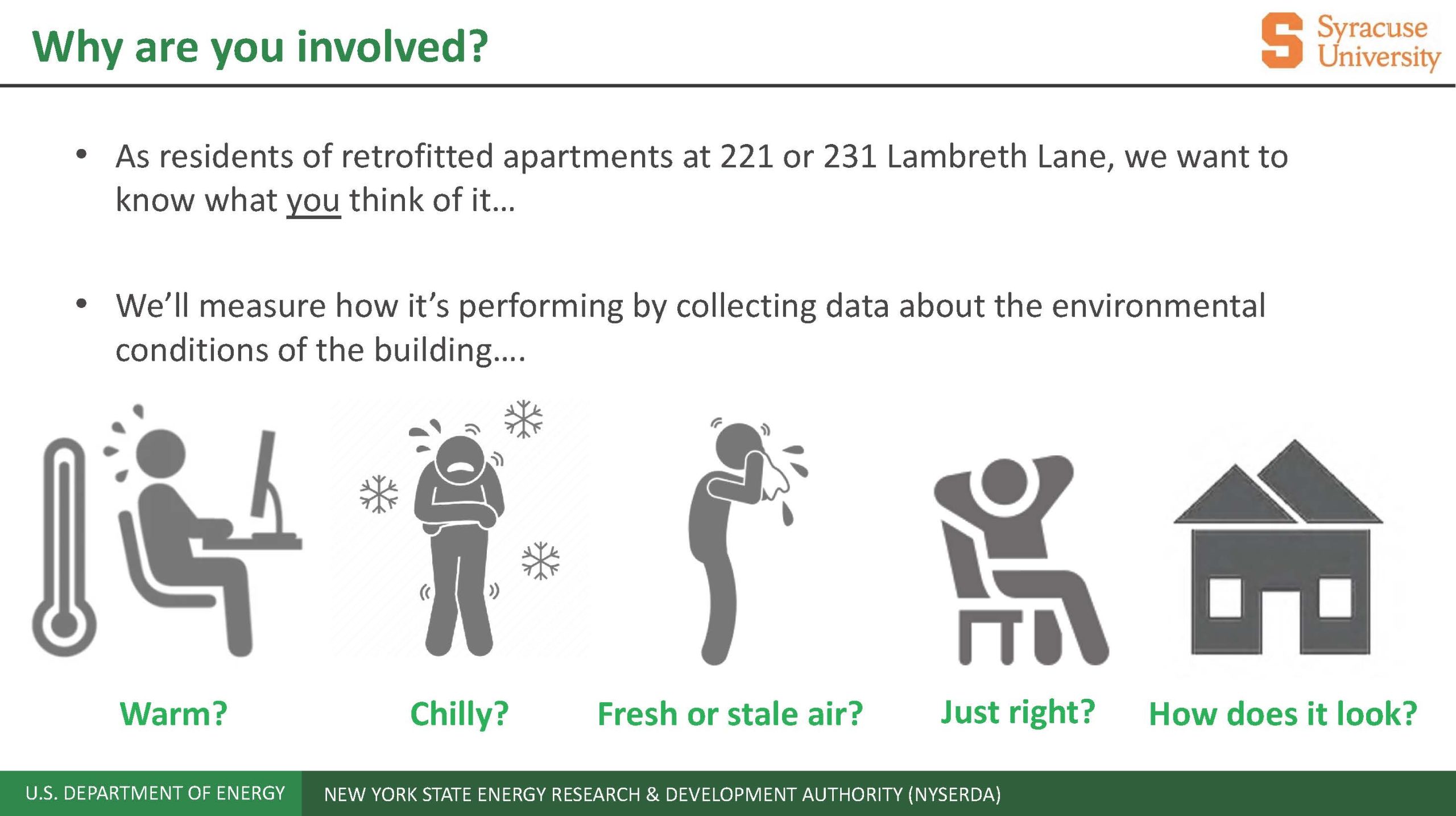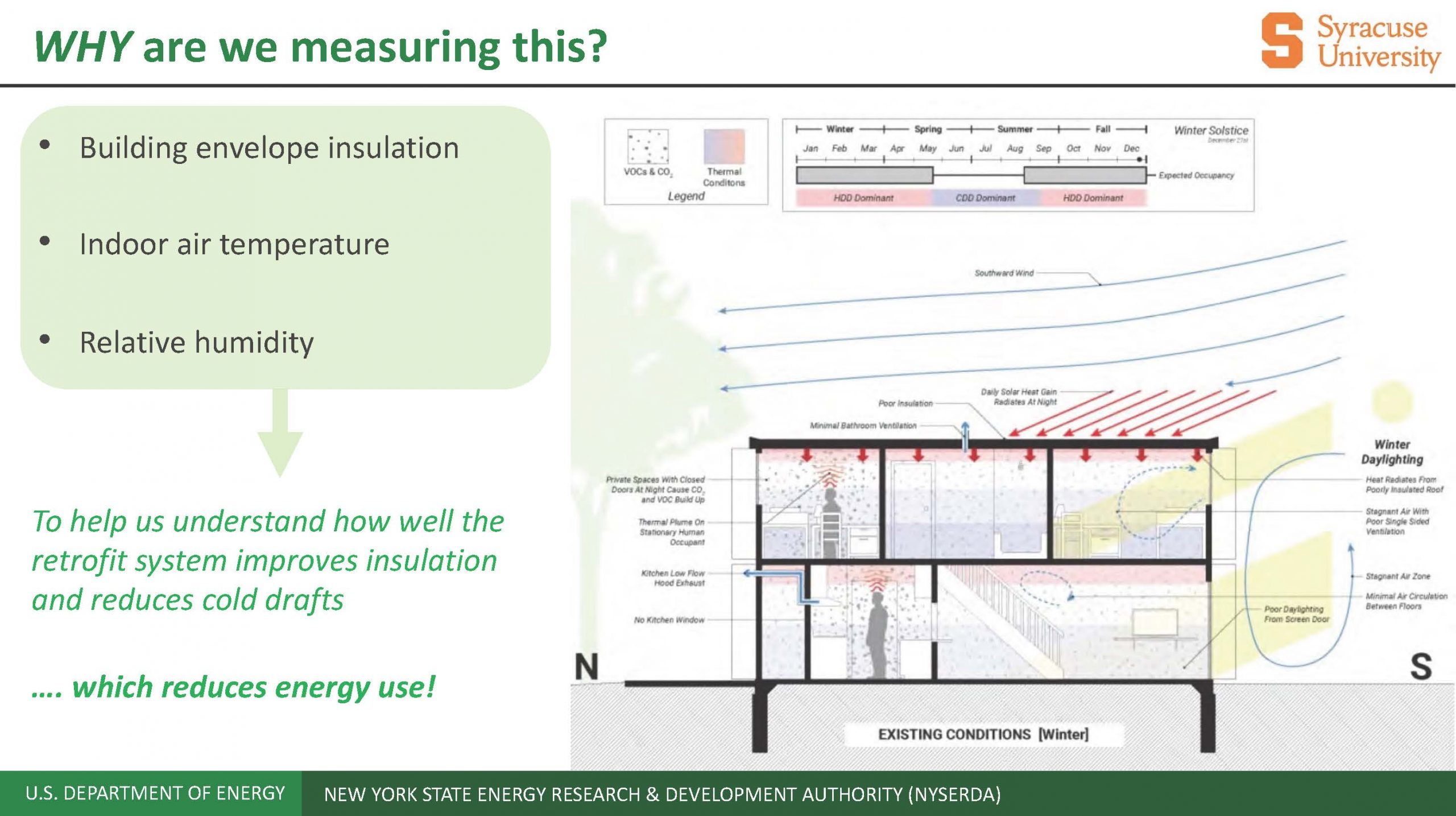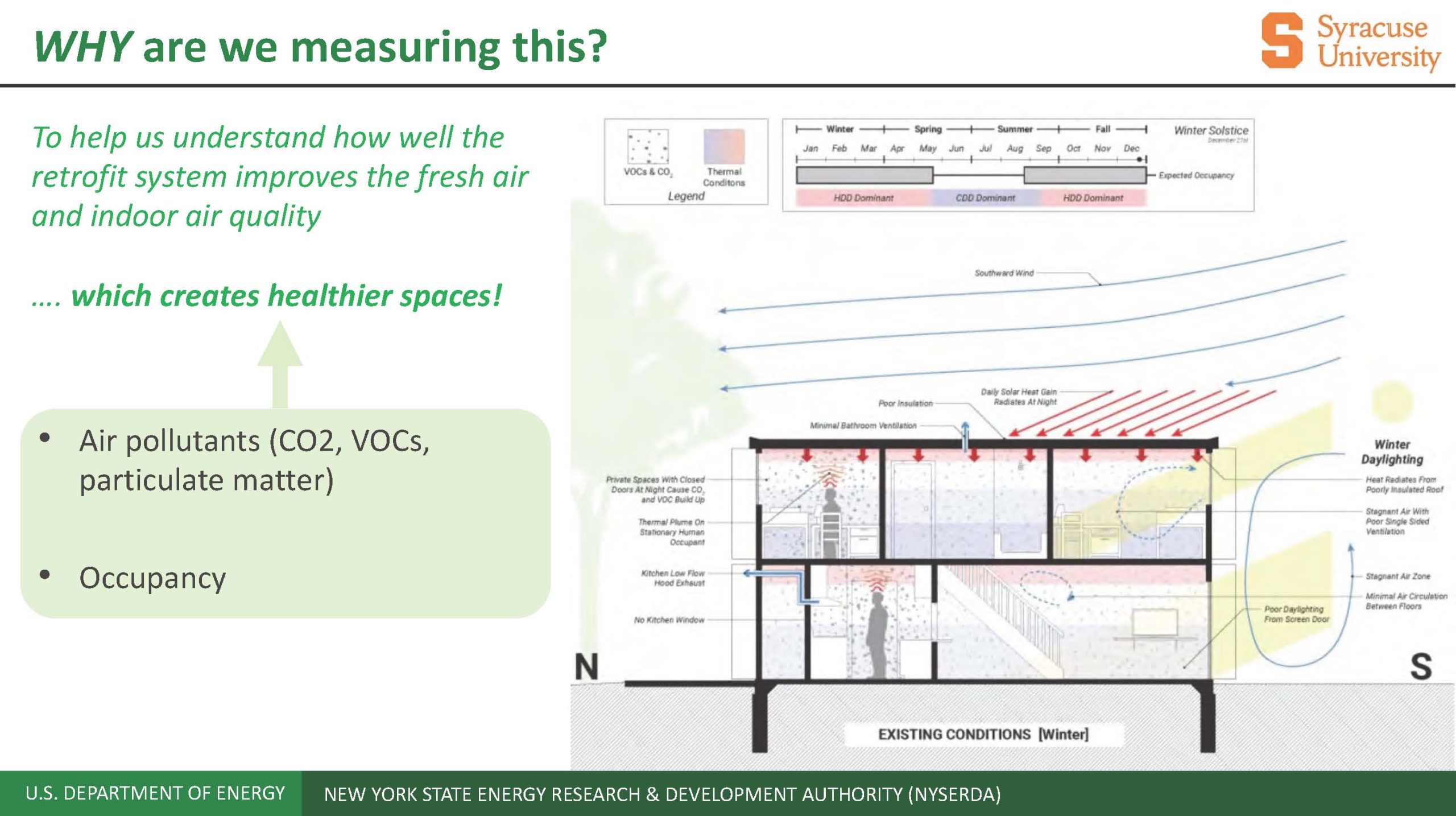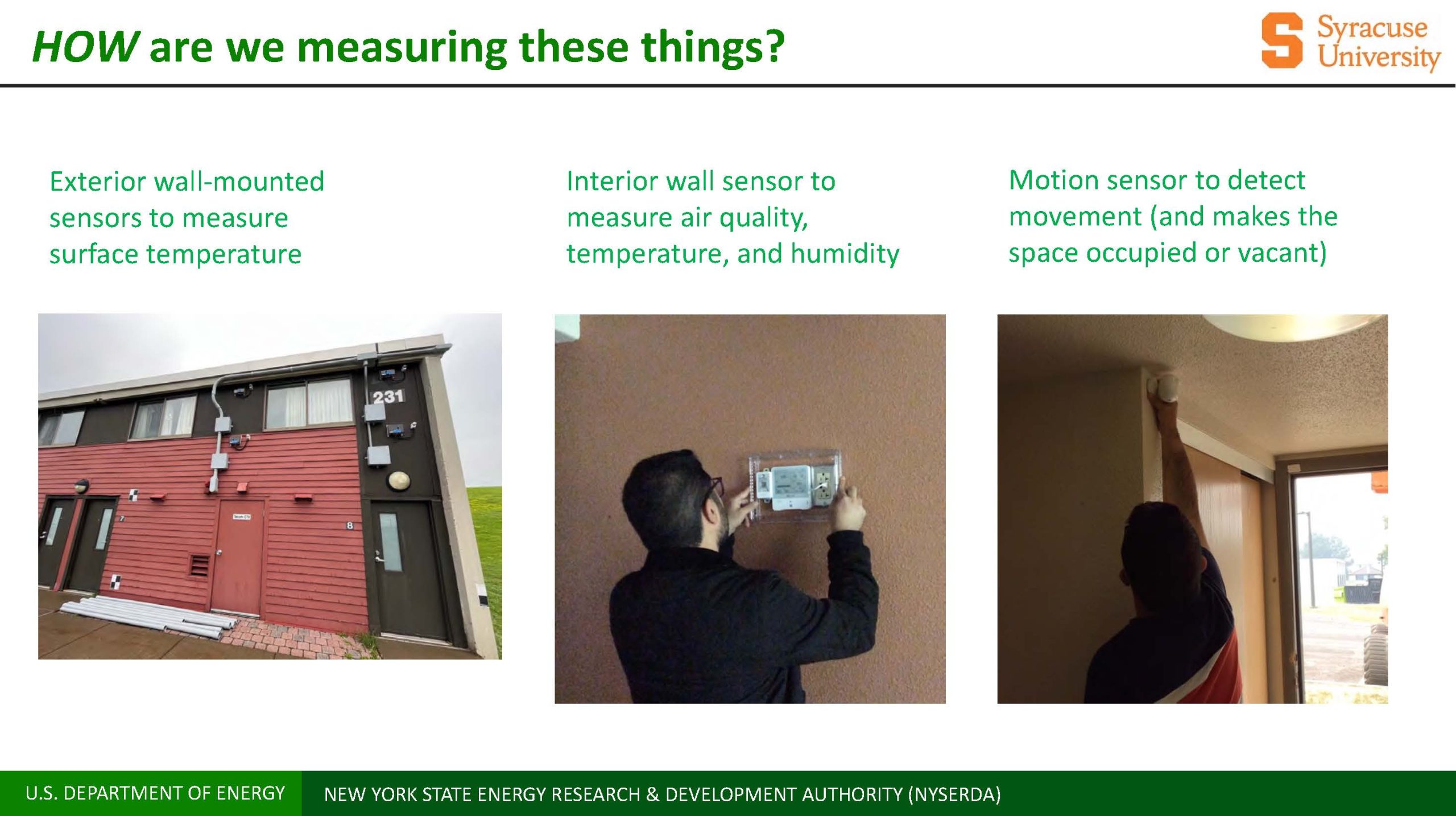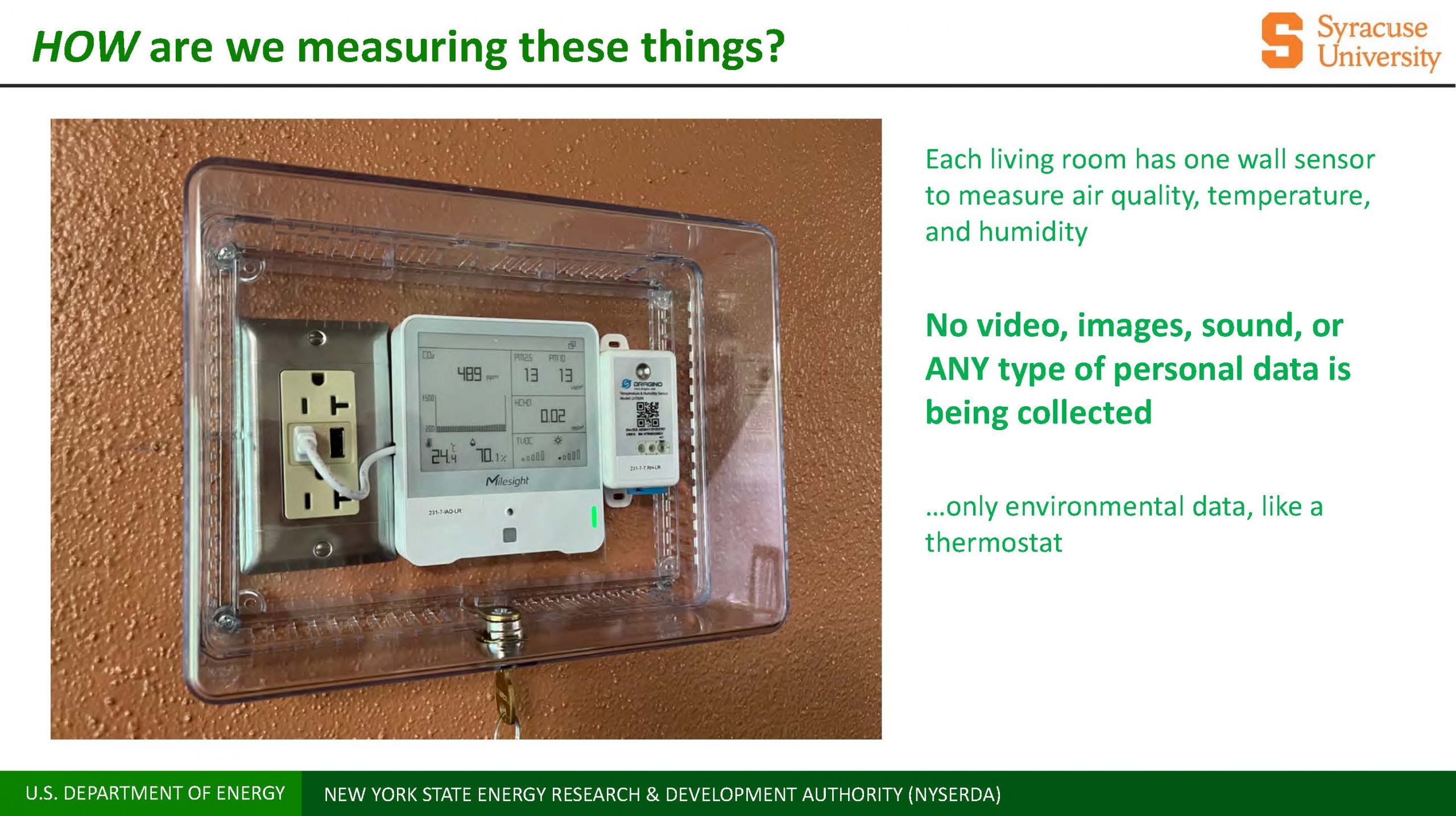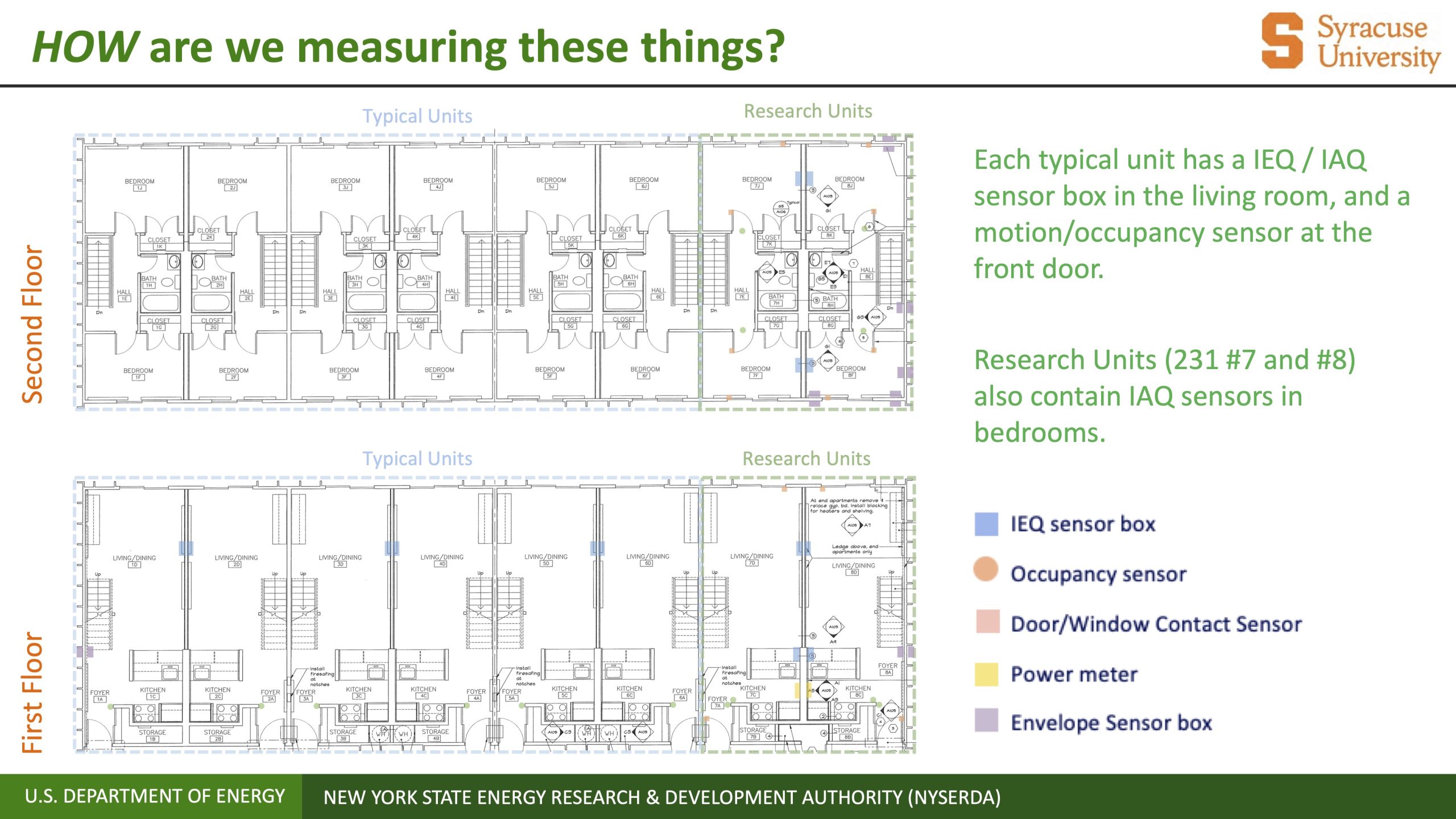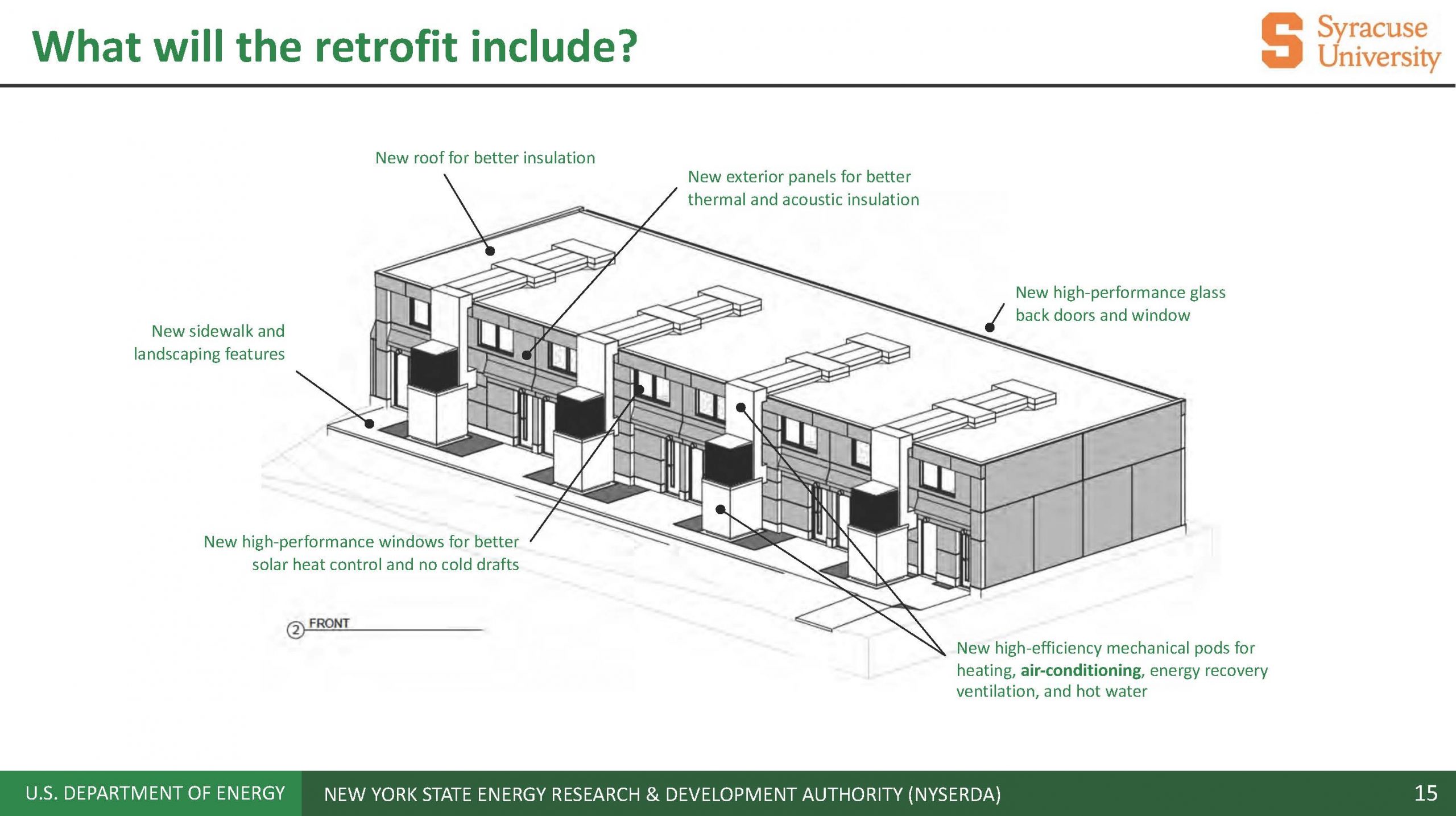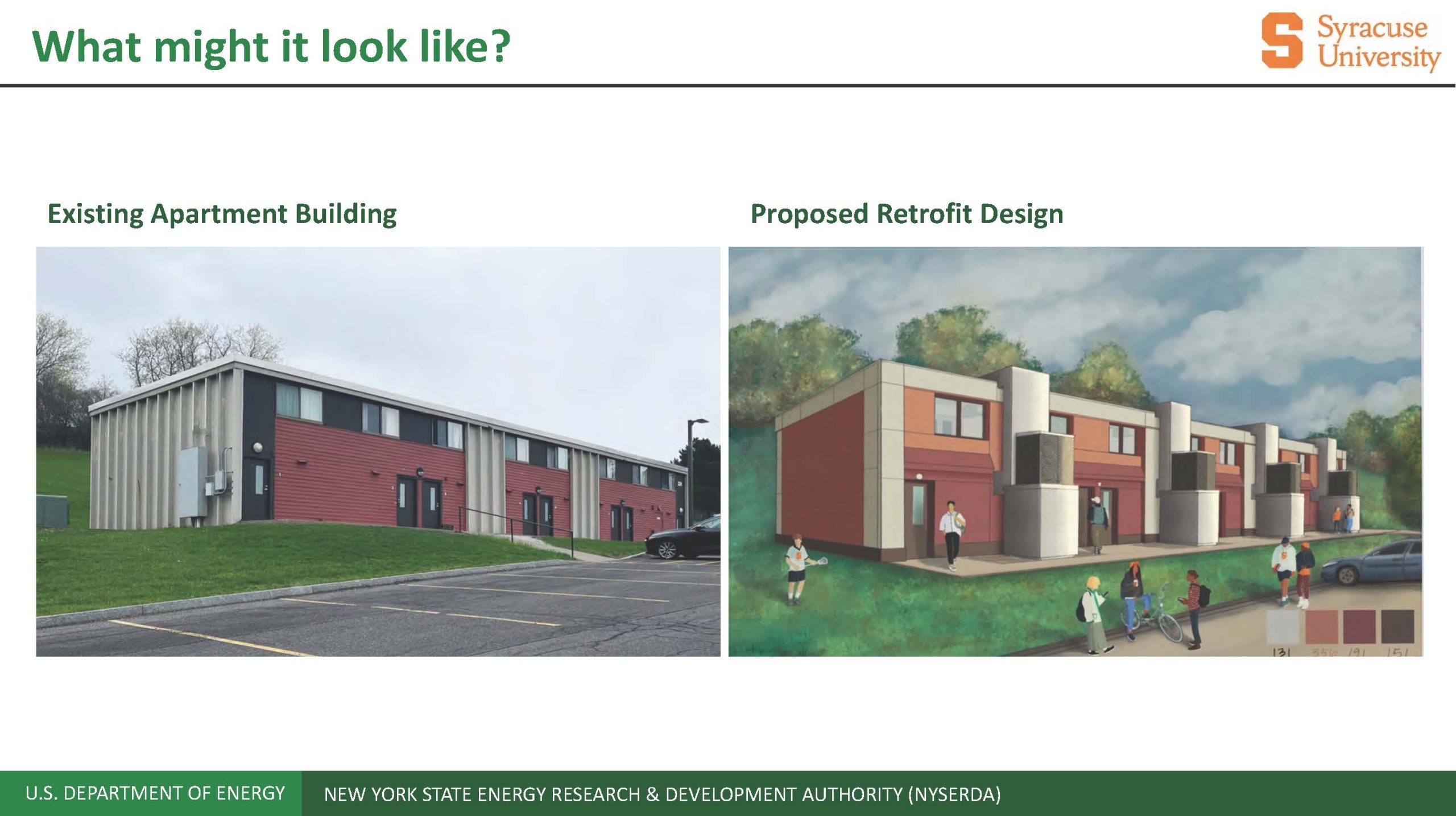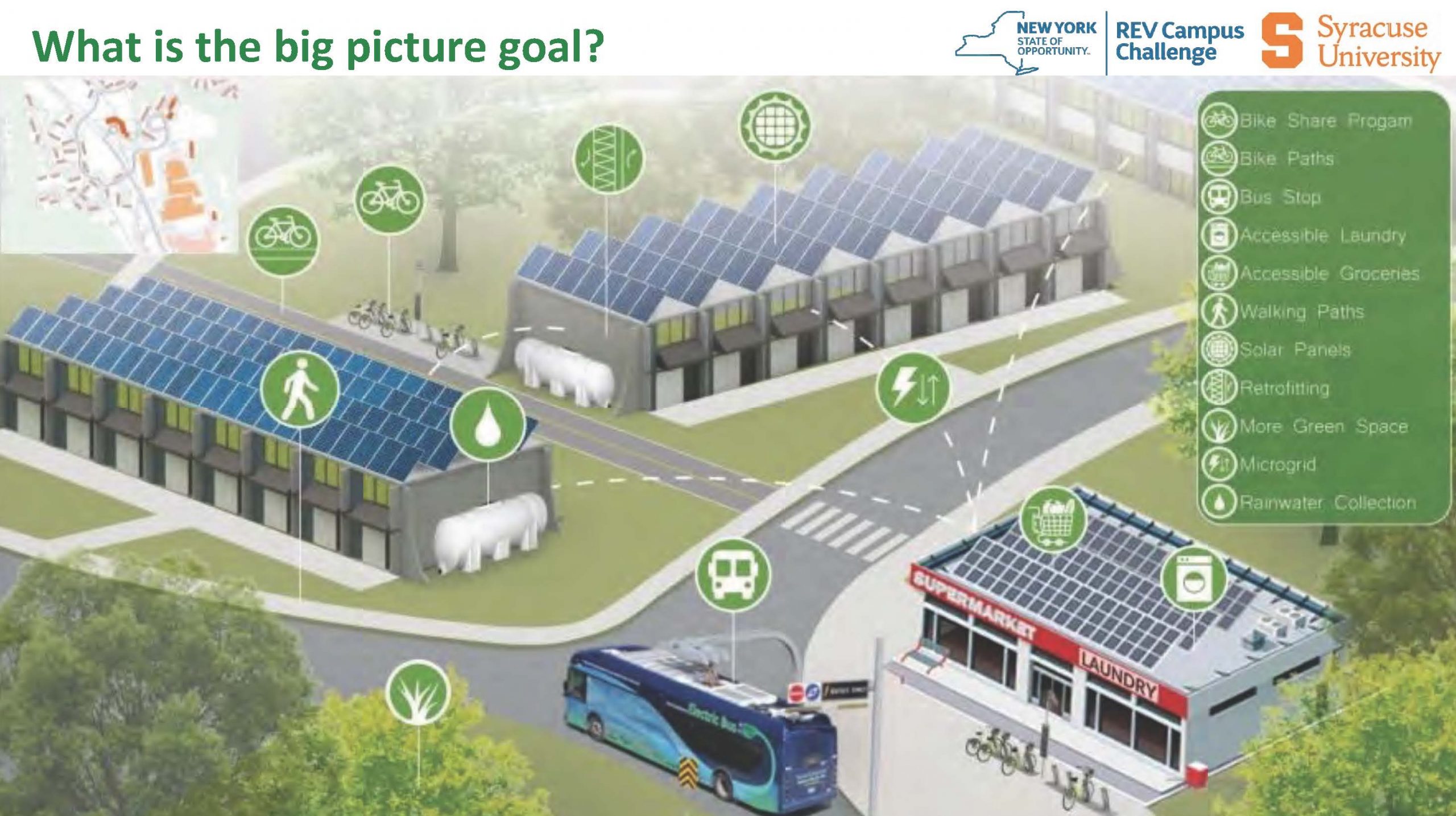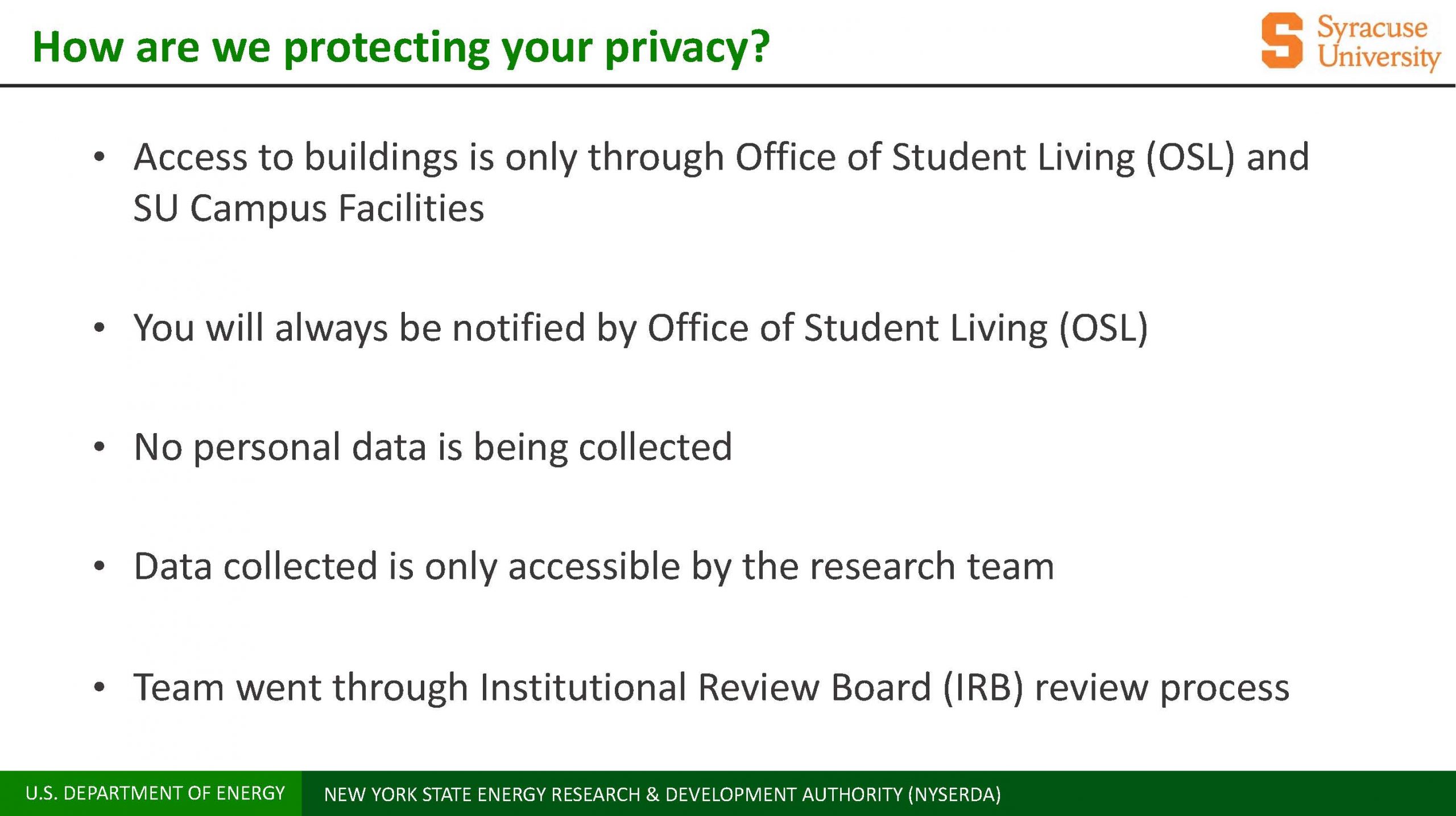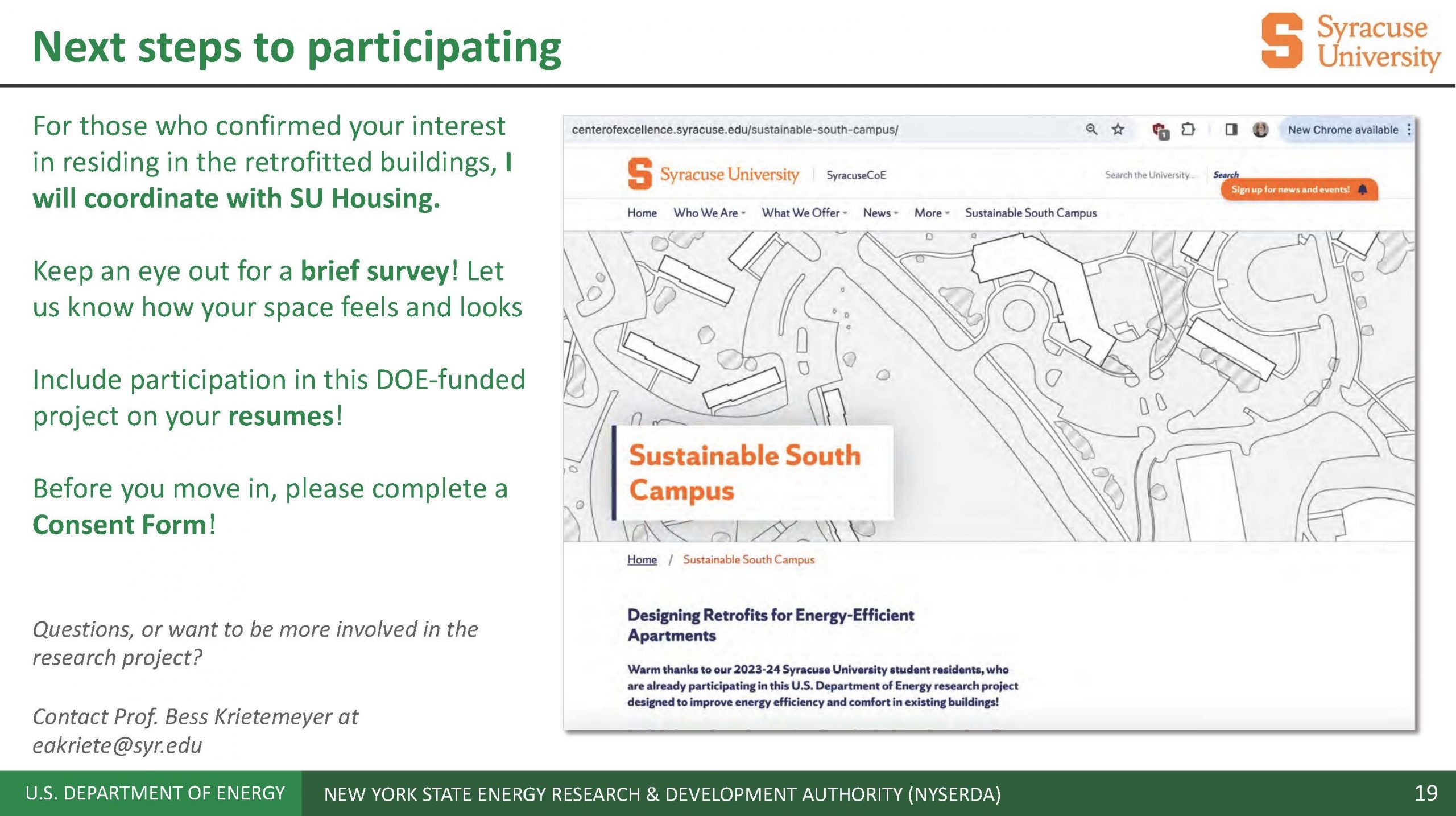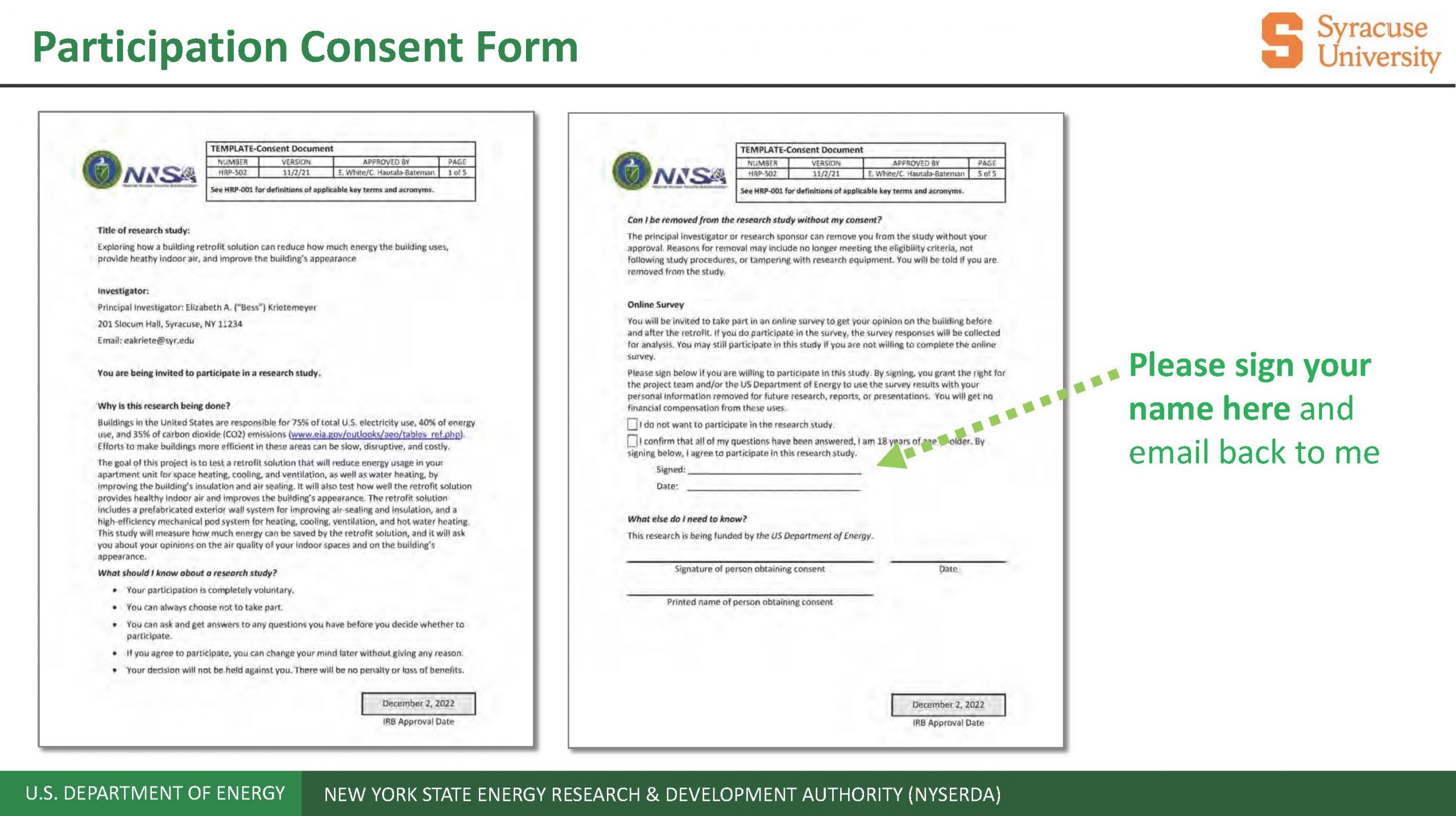Designing Retrofits for Energy-Efficient Apartments
Warm thanks to our 2023-24 Syracuse University student residents, who are already participating in this U.S. Department of Energy research project designed to improve energy efficiency and comfort in existing buildings!
We look forward to welcoming the cohort of 2024-25 students who will be residing in the newly retrofitted buildings and helping to assess the retrofit effectiveness.
Syracuse faculty in the School of Architecture and College of Engineering are leading a multidisciplinary team to design a building retrofit approach that would help combat climate change. Our team was awarded a grant from the U.S. Department of Energy to retrofit two apartment buildings on Syracuse University’s South Campus. The apartment buildings will be retrofitted during summer 2024 with these new features:
- New air conditioning
- New high-performance windows
- New heating and ventilation system, including an energy recovery ventilation (ERV) system, offering improved energy efficiency and fresher indoor air
- New highly insulated exterior wall panels
- New insulated roof
What are residents saying about the project?
“Living in Lambreth Lane is great! I’m amazed at how easy it is to help with this important DOE project. Studying energy use and air quality in buildings is crucial for our comfort and health. Looking forward to seeing the positive impact it’ll have!” – Aicha
“The experience has been great so far. I honestly don’t have to do a whole lot. I have a minor in Sustainable Construction, so I’m really interested to see where this project goes.” – Isaac
About the Project
Download a Project Consent Form with all the information.
Additional FAQ
Contact Information:
Principal Investigator: Elizabeth A. (“Bess”) Krietemeyer
201 Slocum Hall, Syracuse, NY 11234

